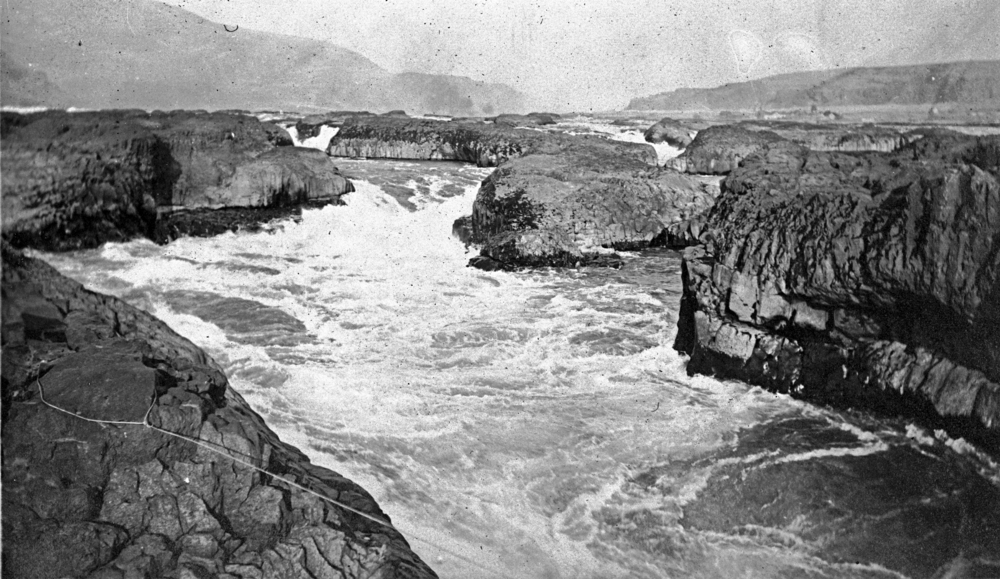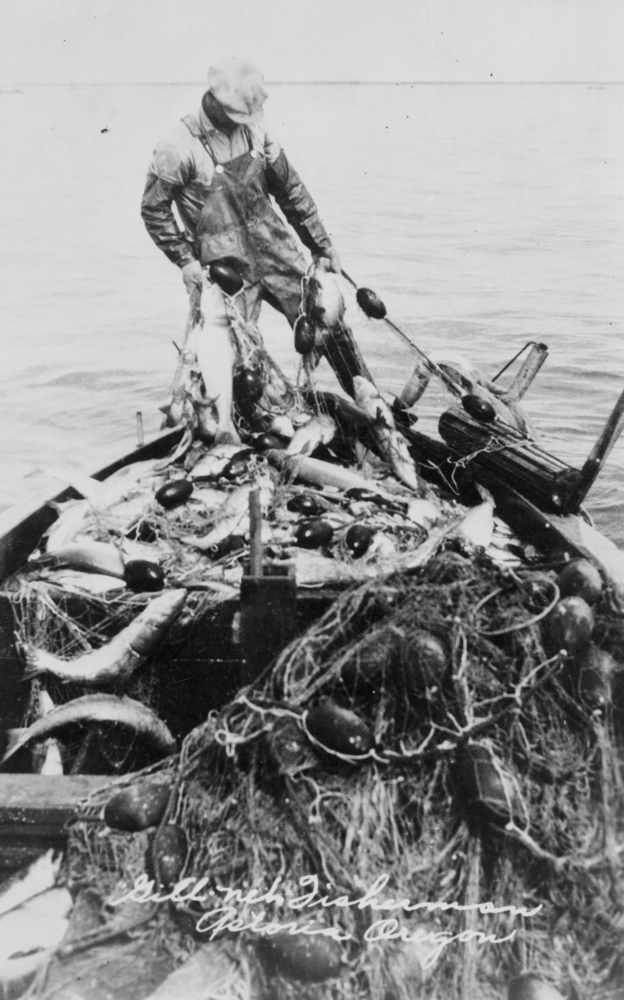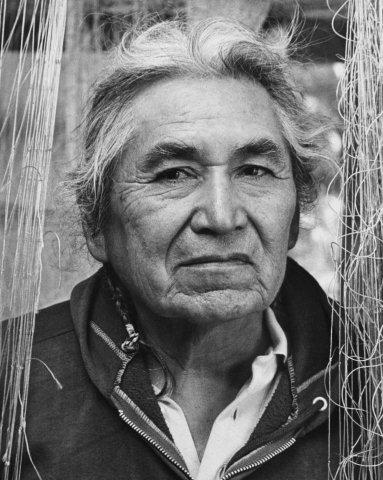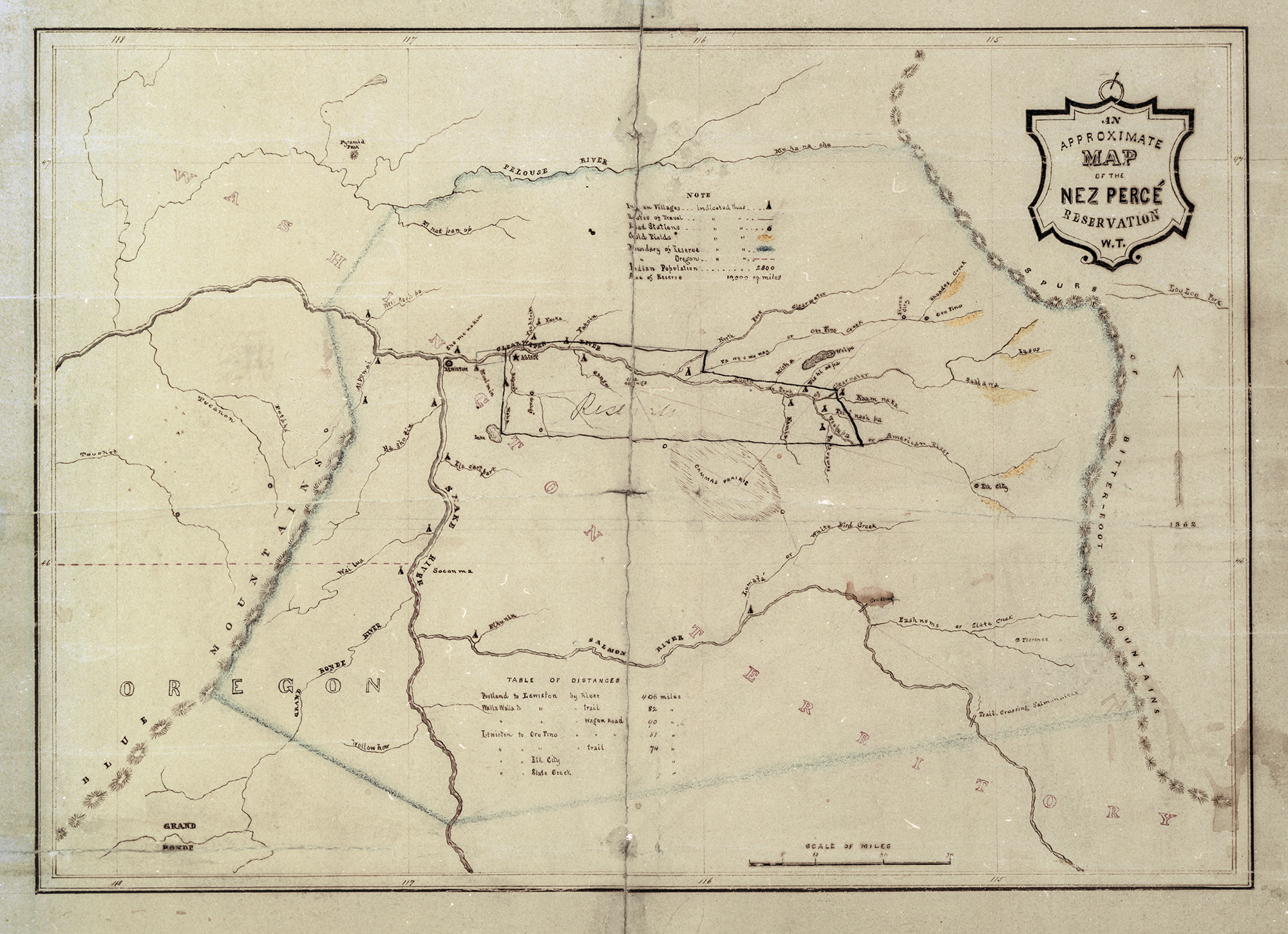The Columbia River Inter-Tribal Fish Commission (CRITFC) is the fishery coordinating agency of four Columbia River treaty tribes: the Nez Perce Tribe (Lapwai, Idaho), the Confederated Tribes of the Warm Springs Reservation (Warm Springs, Oregon), the Confederated Tribes of the Umatilla Indian Reservation (Pendleton, Oregon), and the Confederated Tribes and Bands of the Yakama Indian Nation (Toppenish, Washington). The agency is headquartered in Portland.
These four sovereign governments established CRITFC in 1977 to help protect the tribes’ treaty-guaranteed fishing rights and their management authority in traditional fishing locations. In 1855 treaties with the United States, the tribes reserved the right to fish at “all usual and accustomed places,” the majority of them in the Columbia River Basin, in exchange for the cession of millions of acres of tribal lands.
Throughout much of the twentieth century, these and other Pacific Northwest tribes and their members found litigation necessary to defend the fishing rights reserved in treaties. In several cases, the federal courts, including the U.S. Supreme Court, upheld tribal reserved fishing rights. The most important cases for the four Columbia River tribes were U.S. district court decisions in Sohappy v. Smith/U.S. v. Oregon (1969) and U.S. v. Washington (1974).
In the years following these cases, state and federal regulations prevented tribal members from catching their fair share of the harvestable salmon. At the same time, government efforts to protect salmon and salmon habitat were proving to be notably unsuccessful. In part, the genesis of the Columbia River Inter-Tribal Fish Commission has its roots in these failures.
CRITFC's other roots are in the tribes’ traditions of resource management. The best known example is the old Celilo Fish Committee, which exercised its authority in the vicinity of Celilo Falls, a productive ancient fishing place on the Columbia River, drowned by The Dalles Dam in 1957.
Today, each tribe's fish and wildlife committee is part of the Commission, CRITFC’s decision-making body. The Commission operates by consensus, with each member-tribe having a single vote. The preamble to CRITFC’s constitution and by-laws states: “by unity of action we can best accomplish these things, not only for the benefit of our own people but for all of the people of the Northwest.”
As co-managers of the Columbia River, the four tribes and the states of Oregon, Washington, and Idaho have responsibilities for habitat, harvest, and hatchery decisions. The four tribes have charged CRITFC with helping them restore Columbia River Basin salmon and its habitat and secure the fishing rights of current and future tribal members who continue, as their ancestors did, to fish for spiritual and physical sustenance as well as commercial livelihood.
To accomplish its goals, the Commission employs biologists, hydrologists, and other scientists; public information specialists; policy analysts; police officers; and administrators who work in fisheries research and analyses, advocacy, planning and coordination, harvest control, and law enforcement.
In 2000, CRITFC was honored with the American Fisheries Society’s President’s Conservation Award for demonstrated commitment to conservation and innovation. Two years later, CRITFC’s executive director won a Ford Foundation/Advocacy Institute “Leadership for a Changing World” Award for promoting positive community change. Then Executive Director Donald Sampson received a grant of $100,000 to support tribal youth internships in natural resources and $30,000 for other CRITFC activities. Also in 2002, the Harvard Project on American Indian Economic Development honored the Yakama, Umatilla, Nez Perce, and Warm Springs tribes with $10,000 to spread the story of their successful cooperative organization, the Columbia River Inter-Tribal Fish Commission.
-
![Celilo Falls, about 1910.]()
Celilo Falls, 1910.
Celilo Falls, about 1910. Oreg. Hist. Soc. Research Lib., OrHi 66878
-
![Fishing at Celilo Falls (Benjamin Gifford photo).]()
Fishing at Celilo Falls.
Fishing at Celilo Falls (Benjamin Gifford photo). Oreg. Hist. Soc. Research Lib., OrHi 7784
-
Fishing at Celilo Falls.
Fishing at Celilo Falls. Oreg. Hist. Soc. Research Lib., OrHi 90166
Related Entries
-
![Columbia River]()
Columbia River
The River For more than ten millennia, the Columbia River has been the…
-
![Columbia River Fisherman's Protective Union]()
Columbia River Fisherman's Protective Union
The Columbia River Fishermen's Beneficial Aid Society was organized on …
-
![David Sohappy (1925–1991)]()
David Sohappy (1925–1991)
Born and raised on the Yakama reservation in south-central Washington a…
-
![Native American Treaties, Northeastern Oregon]()
Native American Treaties, Northeastern Oregon
After American immigrants arrived in the Oregon Territory in the 1840s,…
Related Historical Records
Map This on the Oregon History WayFinder
The Oregon History Wayfinder is an interactive map that identifies significant places, people, and events in Oregon history.
Further Reading
Ulrich, Roberta. Empty Nets: Indians, Dams, and the Columbia River, 2d ed. Corvallis: Oregon State University Press, 2007.
Berg, Laura, ed. The First Oregonians, 2d ed. Corvallis: Oregon State University Press, 2007.
Cohen, Fay. Treaties on Trial: The Continuing Controversy over Northwest Indian Fishing Rights. Seattle: University of Washington Press, 1986.
Columbia River Inter-Tribal Fish Commission.
Cone, Joseph. A Common Fate: Endangered Salmon and the People of the Pacific Northwest. New York: Henry Holt, 1995.







